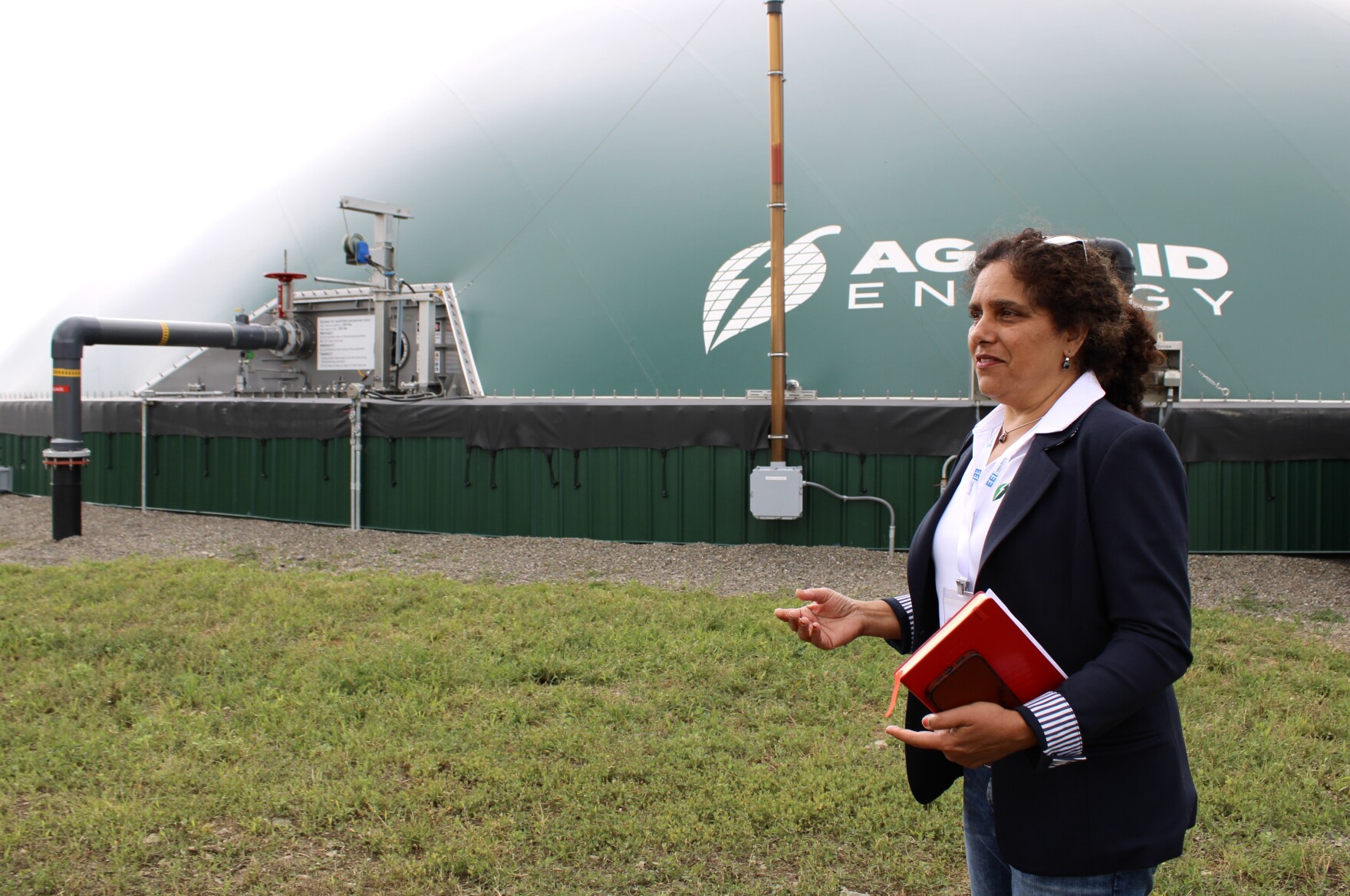Two UConn graduate students have been awarded Fulbright Scholarships for research overseas.
Jonathan Winterstein, a doctoral student in materials science and engineering, will carry out research for nine months at the Austrian Centre for Electron Microscopy and Nanoanalysis – an institute renowned for its high quality electron spectroscopy and microscopy. The Centre is associated with the Technical University of Graz.
Amanda Wendt, a doctoral student in ecology and evolutionary biology in the College of Liberal Arts and Sciences, will continue her research on bats and their role in the regeneration of tropical forests in Costa Rica.
The Fulbright program is sponsored by the U.S. government and seeks to enhance cultural awareness and cooperation between U.S. scientists and professionals and peers around the globe.
Clean Energy Technologies

Winterstein’s Fulbright research will focus on ceramic fuel cell materials. He says ceramics play an important role in making next-generation clean energy technologies – such as solar and wind power – affordable and reliable.
“Currently, cost is restrictive and the spread of solar and wind resources is not uniform,” he says.
“That is, not every part of the world receives equal wind or sunlight. Solutions to these barriers may come in the form of new technologies based on ceramic materials. For example, some ceramic materials can be used to convert solar heat into hydrogen that can later be used to power fuel cells. Hydrogen technology is a potential means to reduce cost and distribution difficulties of solar and wind power.”
He notes that many technologies to convert plant material to biofuels also depend on ceramics. Ceramic fuel cells, which convert clean hydrogen or biofuels to electricity without burning, are among the most promising technologies for clean energy generation, he says.
Winterstein’s research at UConn has focused on the chemical and structural characterization of oxide ceramics, in particular cerium oxide, a promising material for energy technologies.
He is seeking to control defects in the ceramic materials in order to optimize the performance of fuel cell materials, using transmission electron microscopy and spectroscopy to study defects at the nano scale.
Winterstein previously received a prestigious National Defense Science & Engineering Graduate Fellowship, which has supported much of his doctoral research. He is advised by C. Barry Carter, professor and head of the Department of Chemical, Materials, & Biomolecular Engineering.
Tropical Forest Ecology

Wendt is currently participating in a large field study at the La Selva Biological Station in northern Costa Rica, where she is conducting research on the roosting behavior, foraging behavior, and seed dispersal habits of a particular bat species.
Macrobats, such as the large fruit bats, eat ripe fruits as part of their diet. As they eat the pulp of the fruit, the seeds drop to the ground below them.
These seeds are then either eaten or moved by other animals that spread them around the forest floor, creating new saplings and new growth forest. A single fruit bat can disperse thousands of seeds to help replace the forest it lives in.
Wendt is examining a group of fruit-eating bats called “tent bats” that roost or nest in the leaves of palms.
While the bats’ tendency to disperse seeds for a wide variety of mature forest trees is well-established, little is known about what factors influence where they roost and what happens to the seeds once they are dropped below the roost.
Wendt has spent much of the past three years catching bats in nets, mapping forest areas, and tracking seedlings.
As part of her Fulbright work, Wendt will expand her research into an analysis of how local communities interact with forest areas in their region and the bat populations that live there.
“I am especially curious to get an idea about what the land owners and neighboring communities know about the mammal community of the forest patches – what animals they see there, and if they are seeing more or less animals than before,” Wendt says.
“If there are less mammals in small forest patches, then the bats I study may be even more important to the forest.”
Robin Chazdon, professor of ecology and evolutionary biology, who works closely with Wendt, calls her “an amazing field biologist.” She says Wendt “has strong interests in bat conservation and in enhancing public understanding regarding bats and their ecological interactions with trees.”
She notes that Wendt is a talented educator.
“Her love for natural history is infectious,” Chazdon says. “She enjoys teaching people of all ages and backgrounds about tropical forests and their astounding diversity of creatures.”


